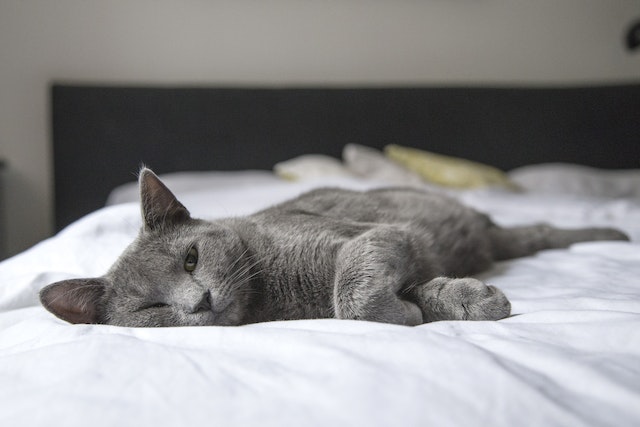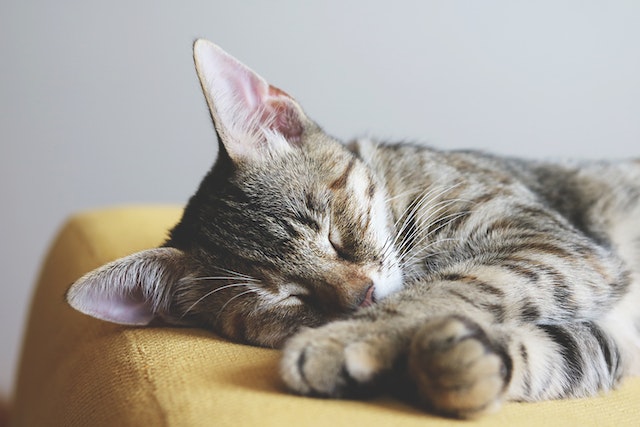Undoubtedly one of the hardest decisions a cat owner will ever have to make is saying goodbye to a cherished pet. Even though we would want for our furry friends to live with us forever, there are instances when euthanasia must be considered. Despite how challenging this procedure might be, there are ways to make it more bearable for both you and your feline friend. In this article, we’ll go over everything you need to know about ‘put my cat down at home’ and provide some practical advice for making the procedure as painless as possible.
Choosing to put your pet to sleep
Choosing to put your cat to sleep can be a difficult and difficult decision to make. Feeling overburdened, depressed, or even guilty about it is entirely normal. But occasionally, it’s the finest thing you can do for your animal companion.
If your cat has a chronic illness that affects their quality of life or gives them persistent discomfort, you might think about euthanasia. Cats can occasionally exhibit behavioural problems that make living in the house dangerous for both them and their owners.

A veterinarian should be consulted before making this challenging decision. They can help you navigate the procedure and provide you with insightful advice on your alternatives.
In the end, only you can decide when it’s appropriate to part ways with your feline friend. During this trying time in your life, have faith in yourself and don’t be afraid to ask for help from family and friends.
Home-based euthanasia
In the privacy of their own homes, many cat owners opt to put their pets to sleep. With at-home euthanasia, your cat can experience its dying moments in peace and comfort.
Find a reliable veterinarian who offers at-home euthanasia before setting up an appointment. They will walk you through it and address any queries or worries you might have.
Make sure your cat is at ease and in a familiar setting on the day of the visit. You might wish to set up a calm area for them with blankets, toys, and snacks.
Your cat’s life will be ended humanely during the surgery by medicine given by your vet. To make sure your cat is entirely at ease throughout, they can suggest anaesthesia beforehand.
After that, give yourself some time to mourn and remember your pet. Think about cremating them or burying them in a specific location so that you can always remember them.
In this sad time, at-home euthanasia can offer solace to both you and your animal companion.
After the death of your pet
It’s normal to experience a range of emotions when your cat has passed away because losing a cherished pet is one of the hardest things you may ever have to go through. You may probably experience loss, grief, and perhaps even guilt, but be aware that these are all typical feelings.
During this grieving stage, it’s crucial to give yourself some time to yourself. Sob and grieve as much as you need to, according to your needs. Discuss your feelings with friends or family members who are aware of your situation.
You can also think about planning a tribute for your pet. This might be anything from creating a scrapbook with images and memories in it to planting a tree in their honour. Having something material can be consoling at this trying period.

Don’t compare your grieving process with anyone else’s; keep in mind that everyone handles loss in a different way. By ensuring that you receive adequate sleep, consume well-balanced meals, and engage in regular exercise, you can take good care of your physical health.
Don’t be afraid to seek professional assistance from a therapist or counsellor who specialises in pet loss counselling if you discover that your grief is interfering with your everyday life or lasting longer than intended. They can help you through this trying period by offering support and direction.
Resources
Euthanasia is never a choice that is made lightly, and losing a cherished pet can be terribly heartbreaking. However, deciding to put your cat to sleep at home can provide you both comfort and peace as your pet approaches the end of his or her life.
Keep in mind that you are not doing this journey alone. From debating end-of-life options to the operation itself, your veterinarian is there to help you at every stage. Additional emotional support can be given at this trying time by turning to resources like bereavement counselling or pet loss hotlines.
While saying goodbye could be difficult, keep in mind that you are ultimately acting in your pet’s best interests. Recognise that the memories you have made together will always occupy a particular place in your heart, and treasure them. Sleep soundly, little ones!





